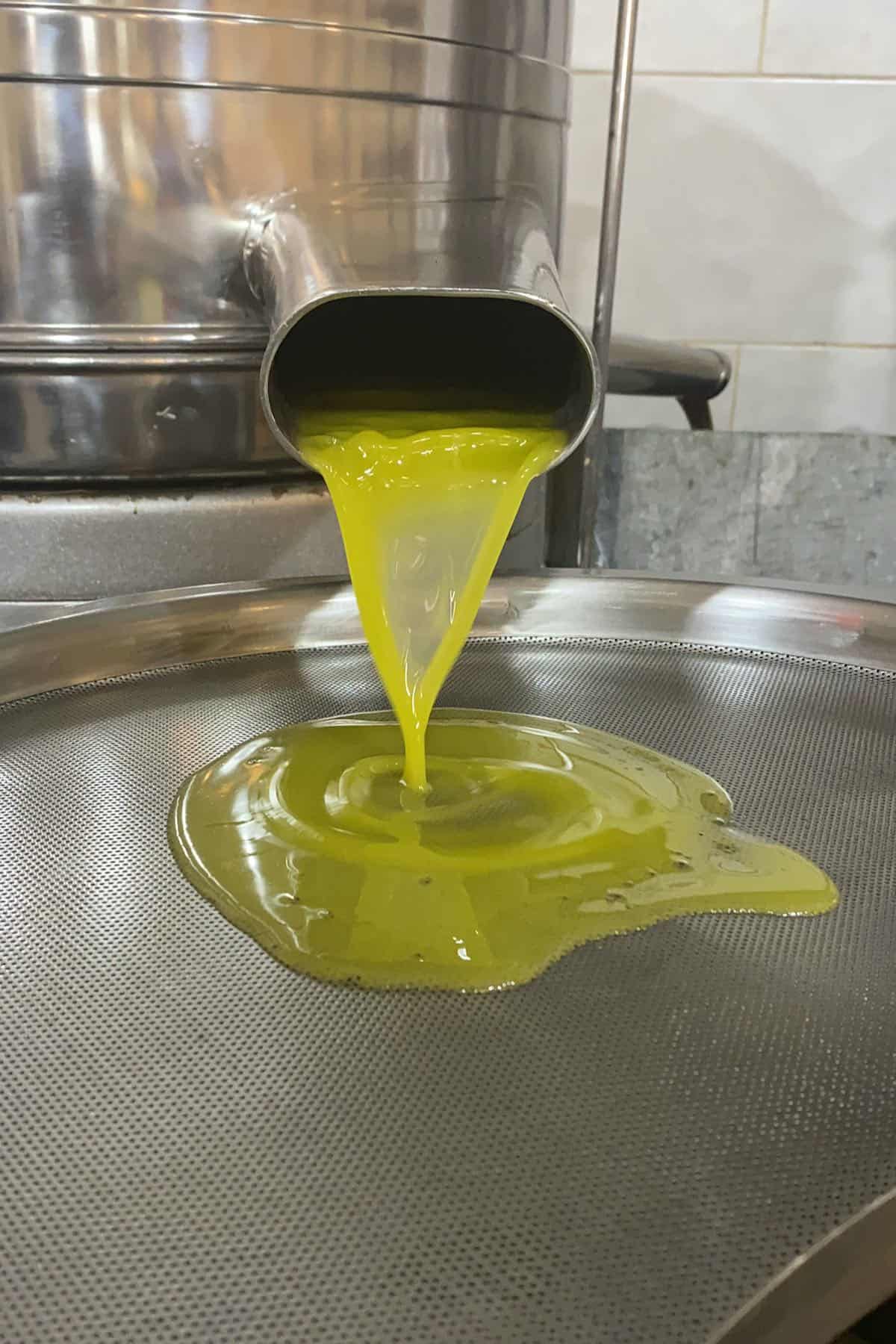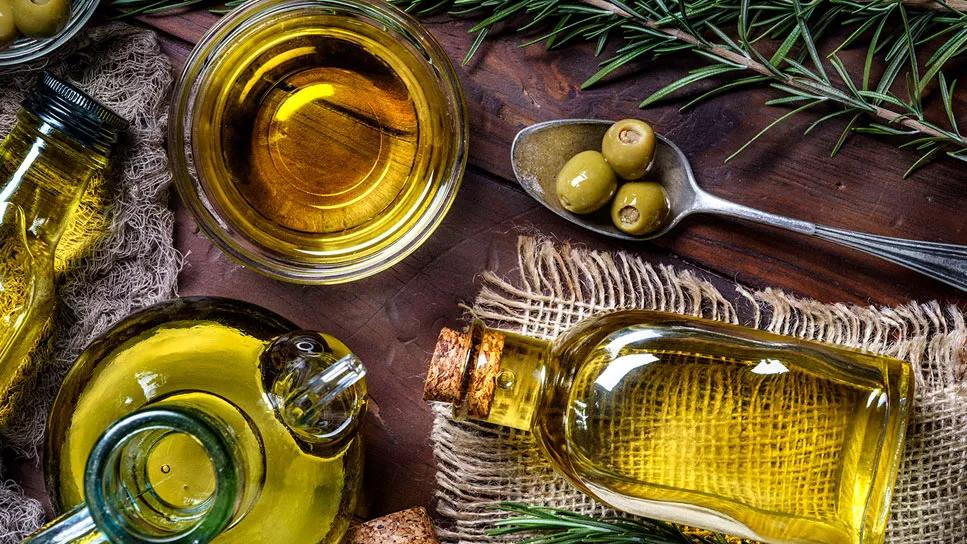Discovering the Various Sorts Of Olive Oil and Their Usages, Consisting Of Additional Virgin Olive Oil
The expedition of olive oil encompasses a diverse range of kinds, each offering distinct tastes and cooking applications. Additional virgin olive oil, renowned for its exceptional top quality and health benefits, offers as a staple in several kitchens, yet it is only one element of this multifaceted component.
What Is Olive Oil?
Originated from the fruit of the olive tree, olive oil is a staple in Mediterranean cuisine and an essential active ingredient in numerous culinary applications. This flexible oil is generated by pushing whole olives, resulting in a liquid that varies in scent, color, and flavor depending upon the sort of olives made use of, the area of cultivation, and the extraction process. Olive oil is predominantly composed of monounsaturated fats, particularly oleic acid, which is understood for its prospective health and wellness advantages, consisting of anti-inflammatory residential properties and cardio assistance.
Along with its cooking usages, olive oil has a long background of application in typical medication and skin care, owing to its abundant antioxidant material (extra virgin olive oil benefits). The oil is commonly utilized in dressings, marinates, and for cooking approaches such as sautéing and roasting. Its unique flavor profile can enhance the taste of various dishes, making it a necessary active ingredient for both home chefs and expert chefs
Furthermore, olive oil is commemorated for its duty in the Mediterranean diet plan, which is related to various health and wellness benefits. As understanding of these advantages grows, olive oil continues to acquire popularity worldwide as a fundamental part of a healthy and balanced way of living.
Kinds of Olive Oil
Understanding the numerous kinds of olive oil is necessary for both health-conscious consumers and cooking enthusiasts. Olive oil is identified primarily based upon its extraction approach and high quality, which significantly impacts its health and wellness, taste, and scent benefits.

Light olive oil, in spite of its name, refers to a lighter flavor and not reduced calories. It is suitable for those looking for an extra subtle taste in dressings and marinades. Furthermore, there are flavored olive oils instilled with natural herbs, flavors, or citrus, which can enhance recipes without the need for additional flavoring.
Each type of olive oil serves details culinary objectives, and comprehending these differences permits consumers to make informed selections that line up with their food preparation designs and wellness goals.
Bonus Virgin Olive Oil
Additional virgin olive oil (EVOO) is widely considered the greatest top quality olive oil offered, well known for its abundant flavor and countless health and wellness benefits. To be categorized as extra virgin, the oil needs to be produced from fresh olives making use of mechanical processes, without using solvents or excessive warmth. This meticulous approach preserves the oil's natural tastes, anti-oxidants, and healthy fats, causing an item with a low level of acidity degree of much less than 0.8%.
EVOO is abundant in monounsaturated fats, especially oleic acid, which is connected to decreased swelling and improved heart health and wellness. It likewise includes polyphenols, powerful anti-oxidants that might provide safety results against persistent diseases. The flavor account of EVOO can differ significantly depending upon the olive selection and area of production, varying from grassy and fruity to robust and sharp.

Culinary Use Olive Oil

In cooking, olive oil can be that site made use of for sautéing, toasting, and cooking, giving a much healthier alternative to butter or various other fats. Its high smoke factor makes it ideal for different cooking techniques, while its antioxidants add to a heart-healthy diet. Drizzling olive oil over ended up recipes, such as pasta, fish, or smoked veggies, can raise flavors and add a touch of style.
In addition, olive oil plays a substantial function in cooking, where it can replace conventional fats in recipes for bread and breads, giving moisture and a subtle preference. It likewise serves as a base for instilled oils, permitting cooks to experiment with flavors such as garlic, natural herbs, or chili, further increasing its cooking capacity. In general, olive oil's flexibility makes it essential in both home and specialist kitchen areas.
Picking Quality Olive Oil
When picking quality olive oil, it's necessary to think about a number of essential variables that affect the product's fragrance, flavor, and wellness benefits. Choose for added virgin olive oil (EVOO), which is obtained from the initial cold pushing of olives and has the highest degrees of anti-oxidants and useful substances. Look for oils that are accredited by identified organizations, as this often makes certain adherence to stringent high quality criteria.
The product packaging also plays a considerable function in maintaining the oil's integrity. Choose oils saved in dark glass bottles or tins to secure versus light destruction. Take notice of the harvest date; fresher oils provide remarkable taste and dietary value, so choose items that are within 18 months of their harvest.
On top of that, take into consideration the beginning of the oil. Top quality olive oils typically originate from certain areas recognized for their distinct taste accounts, such as Italian, Spanish, or Greek oils. Ultimately, understand the preference; a high quality olive oil should have a balance of fruity, bitter, check and peppery notes, showing its splendor and intricacy. By examining these variables, you can guarantee you are selecting the finest olive oil for your culinary needs.
Conclusion
In recap, the expedition of different sorts of olive oil discloses distinctive features and applications, with added virgin olive oil standing for the pinnacle of top quality because of its low acidity and high antioxidant web content. Its adaptability in culinary usages boosts tastes in dressings, marinades, and showers. Recognizing the different selections of olive oil permits informed selections in cooking approaches, advertising much healthier practices while improving the general gastronomic experience. Quality option stays essential for optimum benefits.
Acquired from the fruit of the olive tree, olive oil is a staple in Mediterranean food and a key ingredient in numerous cooking applications.The most typical kinds of olive oil include improved olive oil, pure olive oil, and light olive oil.Additional virgin olive oil (EVOO) is extensively regarded as the greatest top quality olive oil available, well known for its rich taste and various wellness benefits. Opt for additional virgin olive oil (EVOO), which is acquired from the first cool pushing of olives and contains the highest levels of anti-oxidants and beneficial compounds.In summary, the exploration of different kinds of olive oil reveals distinct attributes and applications, with added virgin olive oil standing for the peak of top quality due to its low acidity and high antioxidant content.